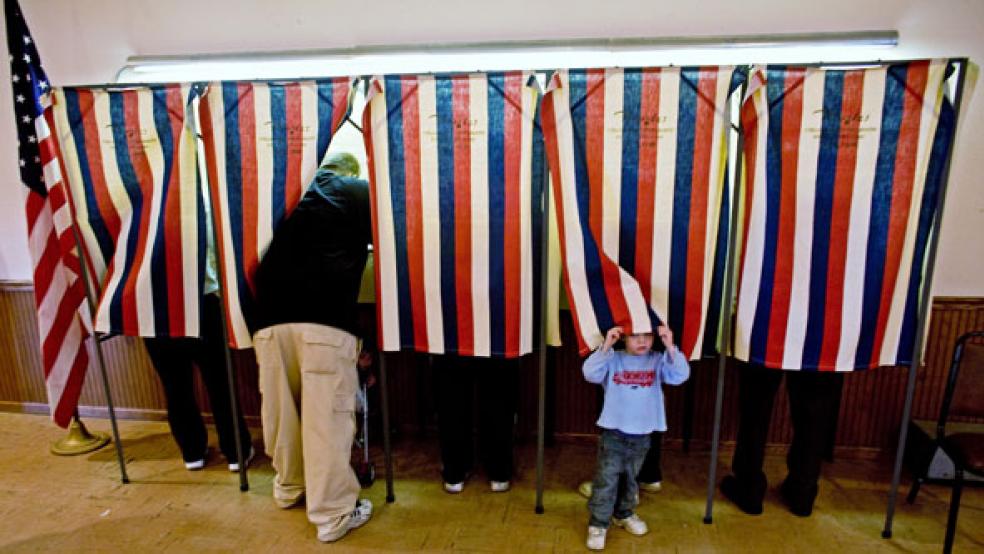Even after the horrific terrorist attacks on Paris in November that killed 129 people and stunned the world, concerns about the economy continued to dominate the concerns of U.S. voters.
A survey that month by Morning Consult showed that 36 percent of likely voters had the economy foremost in their minds in assessing candidates in the Republican and Democratic presidential campaign, while just 22 percent said that national security issues were most important to them.
Related: How National Security Tough Talk Is Taking over the GOP Campaign
That has pretty much been the case for the past year or so, as polling by the Gallup organization and others reinforced the notion that Americans were still not comfortable with the recovery from the Great Recession and were looking for new leadership to help generate jobs and economic growth.
But that was before a radicalized Muslim couple went on a rampage a week ago at a government center in San Bernardino, Calif., killing 14 people and wounding 21. ISIS-inspired terrorism had suddenly arrived in this country, touching off an intense national debate over security and immigration practices and prompting GOP presidential frontrunner Donald Trump to call for blocking all Muslims from entering the country.
On Wednesday, a new survey released by Morning Consult shows that national security has overtaken the economy as the leading concern of a plurality of registered voters. When asked to state their top concerns as they scan the field of 2016 presidential candidates, 34 percent cited national security as their single biggest concern, while 30 percent mentioned concerns about the economy.
“Republicans, conservatives and — surprisingly — women are all more likely to pick security as their top issue,” wrote Reid Wilson of Morning Consult. By contrast, Democrats were more inclined to cite the economy than national security.
Related: How Obama's Response to ISIS Is Boosting Trump and Cruz
From a strictly partisan standpoint, the new polling results have to be good news for Trump and the Republicans headed into the 2016 presidential and congressional elections. That’s because those voters who identified national security as their biggest concern say they would choose just about any GOP candidate over a Democrat running for a House seat next year.
Those who say security is their top concern would choose a generic Republican candidate running for a U.S. House seat over a generic Democrat by a substantial 56 percent to 25 percent margin. Democrats continue to lead among voters who say the economy is most important, 41 percent to 34 percent. Overall, GOP candidates lead the generic ballot over the Democrats, 40 percent to 35 percent.
If that margin holds up, it would be almost impossible for the Democrats to make any significant gains in the House next year.
Related: Here’s Why Trump Is No Sure Thing in Early Voting States
Although Trump has kicked up a firestorm over his call for barring most Muslims from the U.S., he continues to lead in just about every national and statewide poll. In the latest Morning Consult poll, he’s still leading among Republicans and GOP-leaning independents, with 41 percent of the vote. However, he doesn’t do as well as some of the other GOP candidates in hypothetical matchups with Democratic frontrunner Hillary Clinton.
The new survey highlights a dilemma for congressional Democrats who are struggling to find an appropriate response to voters’ heightened concerns about the safety of the country and to Republican criticism of President Obama’s leadership and strategy for combatting the ISIS threat.
The New York Times reported Tuesday that many of the president’s allies on Capitol Hill do not think he has been aggressive enough in confronting the terrorist threat to this country. And many Democrats were underwhelmed by Obama’s Sunday night address to the nation from the Oval Office in which the president sought to reassure the country that his strategy for fighting the terrorists would prevail.
“The president is trying to lay out a plan that is thoughtful,” Sen. Dianne Feinstein (D-CA) told the newspaper. “It may not be robust enough.”





